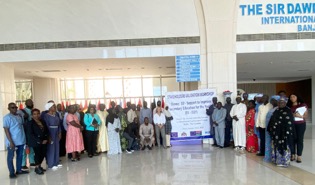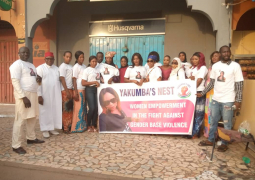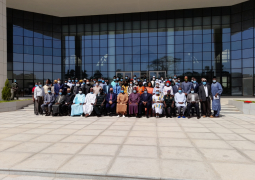
The validation program centered on the theme "EU Support to Improve Secondary Education for Youth" (EU–ISEY) took place at the Sir Dawda Kairaba Jawara International Conference Centre in Bijilo.
This initiative aligns perfectly with the goals set forth in the National Education Sector Strategic Plan (ESSP 2016-2030) and the priorities outlined in the EU Multiannual Indicative Program (2021-2027) for the Republic of The Gambia.
The Gambian government, in partnership with the European Union, developed a groundbreaking education program titled “EU-Support to Improve Secondary Education for the Youth.” This initiative was meticulously crafted by the Ministry of Basic and Secondary Education (MoBSE) and the Ministry of Higher Education, Research, Science, and Technology (MoHERST).
This initiative aims to enhance educational completion rates and address gender and socioeconomic disparities in attainment across the country, particularly in rural regions. It focuses on improving access and retention, elevating quality, and ensuring gender sensitivity, alongside promoting gender balance within the teaching workforce.
The validation process was designed to showcase the key activities proposed under the EU-Supported initiative to Enhance Secondary Education for Youth. It aimed to engage key stakeholders, gather their insights, and incorporate their feedback into the final project document.
Deputising for Professor Pierre Gomez, the Minister of Higher Education, Research, Science and Technology (MoHERST), Mucktarr M. Y. Darboe, Deputy Permanent Secretary (Technical) at MoHERST, reinforced their collective dedication to tackling the challenges faced in secondary education throughout The Gambia.
“This commitment is particularly focused on supporting rural areas, where young individuals experience profound socioeconomic and gender disparities in obtaining quality education.”
The EU-ISEY program, he said, aims to enhance access to secondary education, improve retention and completion rates, and promote quality, inclusivity, and gender sensitivity in teaching and learning environments. "By focusing on these goals, we seek to empower youth, close educational disparities, and support sustainable development in The Gambia."
During the forum, Enrica Pellacani, head of Cooperation at the European Union Delegation to The Gambia, announced that the EU-Support to Improve Secondary Education for the Youth (EU–ISEY) program has received official approval from the Brussels Headquarters.
She expressed her gratitude to all stakeholders for their active involvement in validating the document and eagerly anticipates the successful implementation of the project.
Ousman Bah, representing the Permanent Secretary of the Ministry of Basic and Secondary Education, commended the EU for its support of the project, emphasising that education is a collective endeavor that benefits everyone.
Mr. Bah urged stakeholders to meticulously review the document, further emphasising that it encompasses all activities. He acknowledged the significant efforts already undertaken by the task force and collaborating partners. "I am confident in the effectiveness of their work," he stated, "but we must undergo a validation process to ensure that everyone has a vested interest in it."
Read Other Articles In National News





